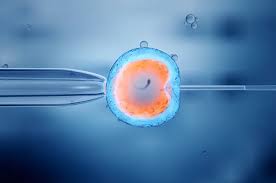Motives for couples who seek procreative technologies can be good. But more importantly, the question we must ask is: Is it moral? Let’s go beneath the surface to consider 3 underlying principles and 3 moral factors, before concluding with 3 closing thoughts.
3 important underlying principles:
1) A child is a gift, not a right. This is an important distinction. Gifts are not to be coveted or grasped, but humbly accepted. A child is both a person and a gift, that is, a person to be loved not an object to be demanded.
2) Technology may assist the marital act but never replace it. This is a fundamental moral principle. Persons are meant to be “begotten, not made” of the act of lifegiving love. Every child has a right to be conceived as a result of this unitive act ordained by God, and raised by a family who accepts him or her as a gift from the divine hand.
3) The unitive and procreative significance of sexual union must never be ruptured. Intentionally doing so violates the natural moral law. Violating this inseparability principle is done to either circumvent union (as in in-vitro fertilization) or impede procreation (as in contraception). The flow of lifegiving love between lover and beloved must never be replaced, impeded, or perverted from its natural end of ‘two becoming one flesh’ (Gen 2:24).
3 points that reveal IVF as morally evil:
1) Human embryos are created and destroyed in the in-vitro process. In order that one embryo might successfully survive implantation to birth, an average of 8 to 15 offspring are intentionally killed, die in the experiment, or mercilessly left frozen in suspended animation. In our country today, countless thousands of tiny human beings in their embryonic stage of life are now frozen indefinitely in cryogenic freezers.
2) Rather than God’s image being begotten of the act of love-union, new human beings are manufactured through the tools of a third-party clinician in a Petri dish. People are not meant to be manufactured as objects but rather conceived through the act of love. The In-vitro process also bypasses an important function of the female reproductive tract – to reject and select the right sperm cells to pass on to the area of the ovum for fertilization. IVF bypasses this natural ‘checkpoint’.
3) Rather than God-given gifts, children of in-vitro fertilization tend to feel as if they are “products of conception,” a phrase commonly used by abortion advocates to depersonalize human beings.
3 closing thoughts:
1) Eve violated the first principle above by grasping at an apparent good that was in fact a moral evil. God warned her against this, as His Church warns us today against IVF. Eve rationalized her transgression, seeing that it was “good for food, pleasing to the eyes, and desirable for gaining wisdom” (Gn 3:6), as did Adam, and humanity fell from grace. We, too, allow our limited human understanding and judgment to get us in trouble when obedience to God should be priority.
2) While IVF is a grave moral evil, children created by the process are as good, dignified, and loved by God as any other. It is possible for God to create good out of our immoral choices; nevertheless, Scripture clearly warns us that one may never do an evil so that good might come out of it (Rom 3:8).
3) The inseparability principle mentioned above of union and procreation is most important, yet difficult to understand. Its truth and beauty are not easily grasped by the human intellect in a fallen world without the aid of grace, which is not available to those without faith.
Our post-Christian society rationalizes manipulating human life by impeding or replacing the marital act (via contraception or in-vitro fertilization respectively). It is often accompanied by strong passions and self-centered motives that can cloud our vision. This is always wrong since it abuses human nature for selfish ends, violates natural law, and usurps the sovereign authority of the God of life (Jn 14:6), who is Love (1 Jn 4:8).

